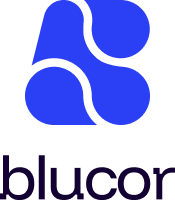- Blucor's Newsletter
- Posts
- AI Recruiting: Your Answer to the Manufacturing Workforce Crisis
AI Recruiting: Your Answer to the Manufacturing Workforce Crisis


Industry 4.0 brought automation to the factory floor, yet the hiring office often remains a bottleneck. Manual screening processes cannot keep pace with production demands, creating operational drag and significant costs from persistent labor shortages and high volumes of unqualified applicants.
Here, we analyze how AI recruiting and digital workers break that bottleneck. We will show how this automation directly addresses the manufacturing industry's core hiring challenges to deliver measurable cost optimization and a more resilient talent pipeline.
The Breaking Point for Manual Hiring
The story is familiar to every manufacturing recruiter. You have a critical need for skilled production workers, but your applicant tracking system is overflowing with candidates who lack the right certifications or experience. Your team spends hundreds of hours sifting through resumes and conducting repetitive phone screens, pulling them away from building relationships with top talent. This inefficiency is expensive. It slows down production lines and burns out your best recruiters. The traditional hiring model simply cannot scale to meet the sector's demands.
Digital Workers for Your Hiring Team
The solution is a digital worker, an AI agent engineered to manage the high-volume, repetitive tasks of recruitment. This technology works 24/7, communicates in 30+ languages, and can screen thousands of applicants against your exact criteria with perfect consistency. These AI assistants integrate with your existing systems to automate the entire prescreening process. They review every application, conduct initial phone interviews to verify skills, and schedule the best candidates directly on your calendar. Your human team is left to focus on final interviews and making great hires.
From Cost Center to Competitive Edge
The return on investment is both immediate and significant. For example, one manufacturer, Twin City Fan, cut recruiting costs by 78% after implementing an AI agent. Their team reclaimed over 100 hours of manual work each month, improving operational focus. By automating the top of the funnel, companies reduce their cost-per-hire and fill roles faster. The hiring function shifts from a cost center to a source of competitive advantage, directly supporting production uptime.
The Future of Manufacturing Talent
Adopting AI recruiting is a critical hiring trend for manufacturers. The next evolution is predictive hiring, where AI platforms analyze performance data to identify the competencies that correlate with success in a role. This enables skill-based matching that moves beyond filling seats to building a more productive workforce. Such a data-driven approach completes the Industry 4.0 vision, aligning talent strategy directly with operational goals.
AI is redefining workforce management for the manufacturing industry. It provides the speed, efficiency, and intelligence needed to build and maintain a strong team in a competitive labor market.
Model the impact of AI on your hiring metrics. Schedule a consultation to project your potential ROI and see how automation can reduce your cost-per-hire.